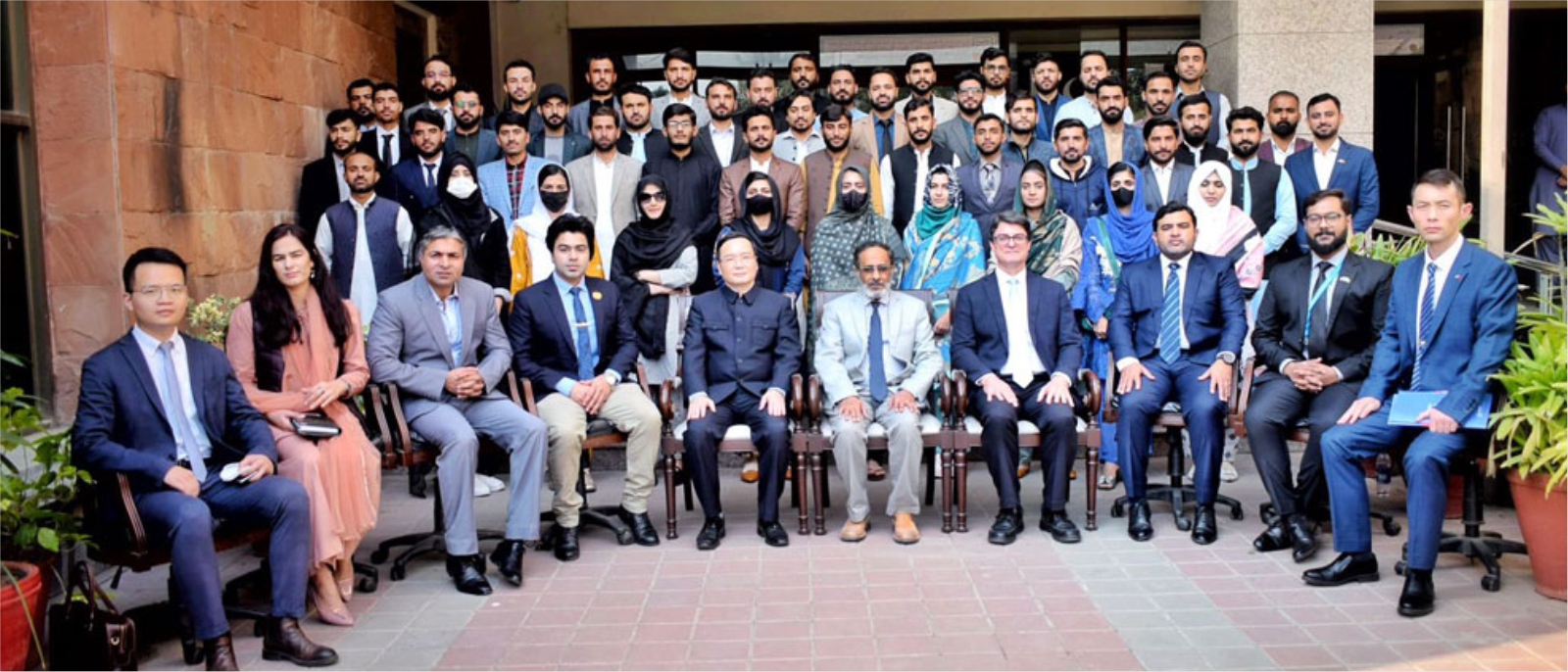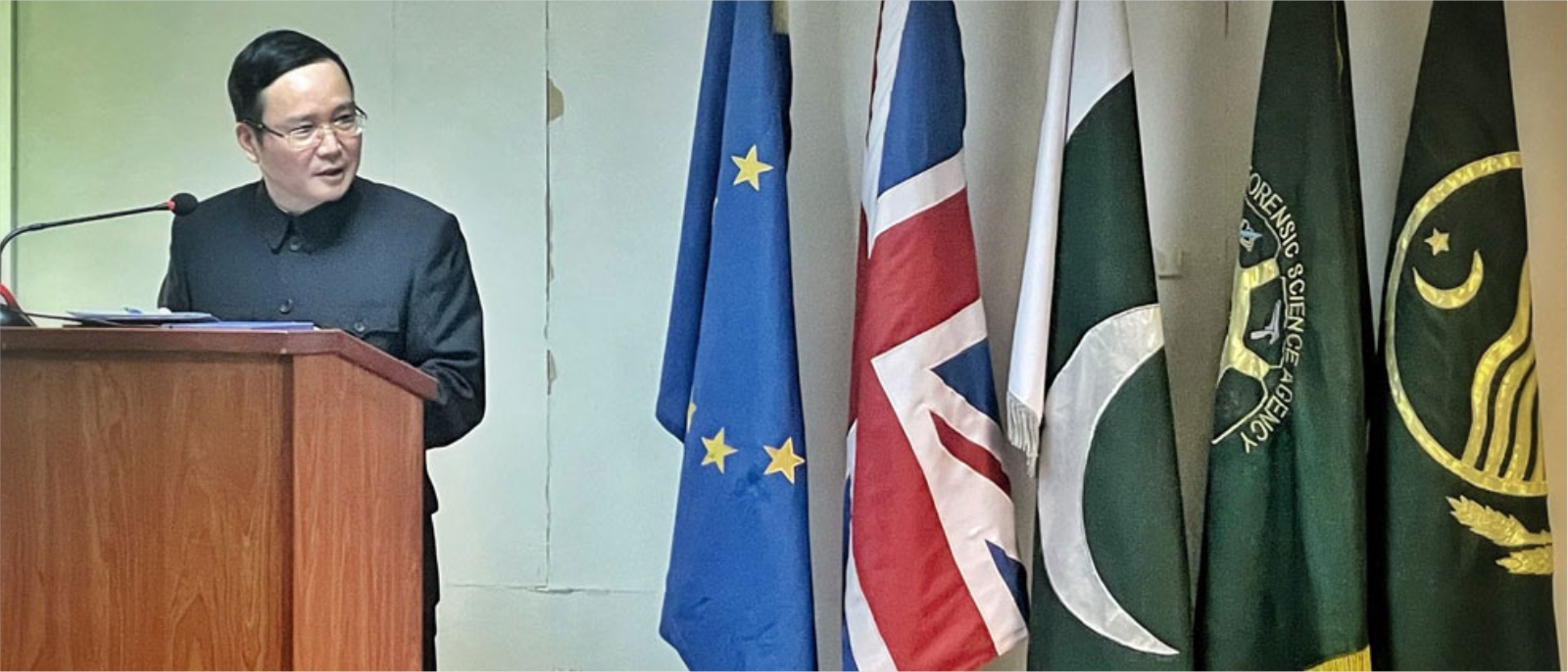
16 December 2023, Lahore - In a significant stride towards strengthening counter-terrorism efforts, the United Nations Office on Drugs and Crime (UNODC) Pakistan successfully conducted two extensive five-day training sessions for corporals, sergeants, and supervisors of explosive and forensics from the Counter Terrorism Department Balochistan. The training took place at the state-of-the-art facilities of the Punjab Forensic Science Agency (PFSA) in Lahore from 20-24 November and 04-08 December 2023.
The Consul General (CG) of the People’s Republic of China in the Islamic Republic of Pakistan, His Excellency Mr. Zhao Shiren, honored the Punjab Forensic Science Agency (PFSA) with his presence to inaugurate the said session. The CG, in his address, conveyed China's commitment to international peace and the collective effort to counter the menace of terrorism in Pakistan. His briefing not only highlighted the substantial contributions made by China but also underscored the nation's dedication to fostering global security.
A pivotal aspect of the visit included an extensive tour of the Punjab Forensic Science Agency, where the CG was provided with an exposure of its various departments, encompassing Crime Scene Management, Firearms and Tool Marks, DNA and Serology, and computer forensics. The Director General of PFSA Dr. Muhammad Amjad, briefed the Consul General through each department, offering detailed insights into their operations and emphasizing their paramount importance in forensic investigations. Moreover, Dr. Jeremy Milsom, the representative of UNODC Pakistan, provided a comprehensive overview of UNODC's extensive efforts throughout the country, particularly in addressing the challenges posed by terrorism.
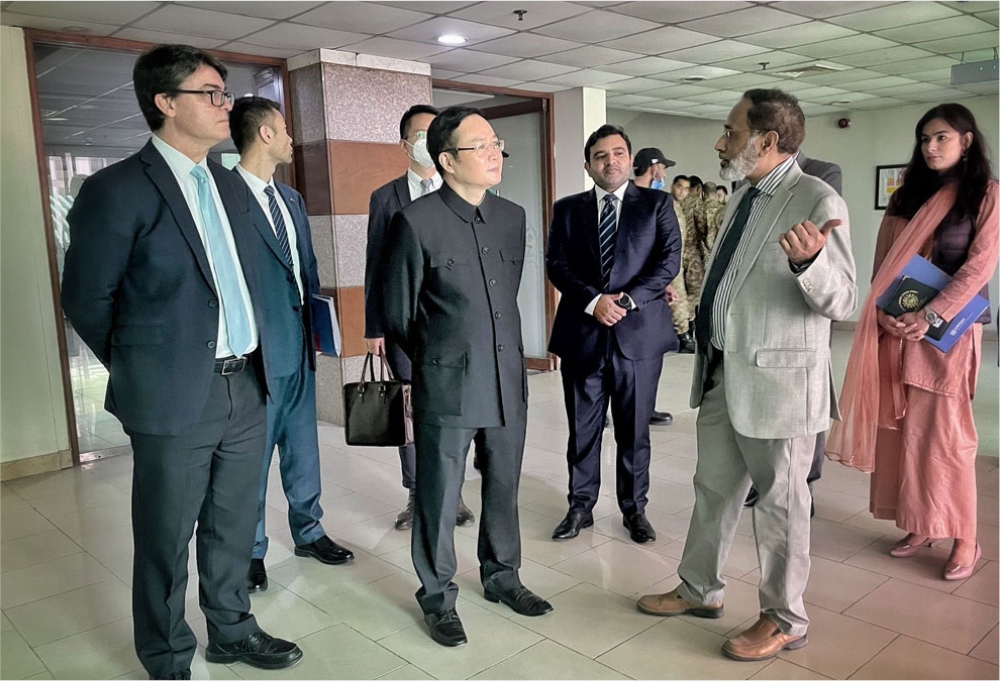
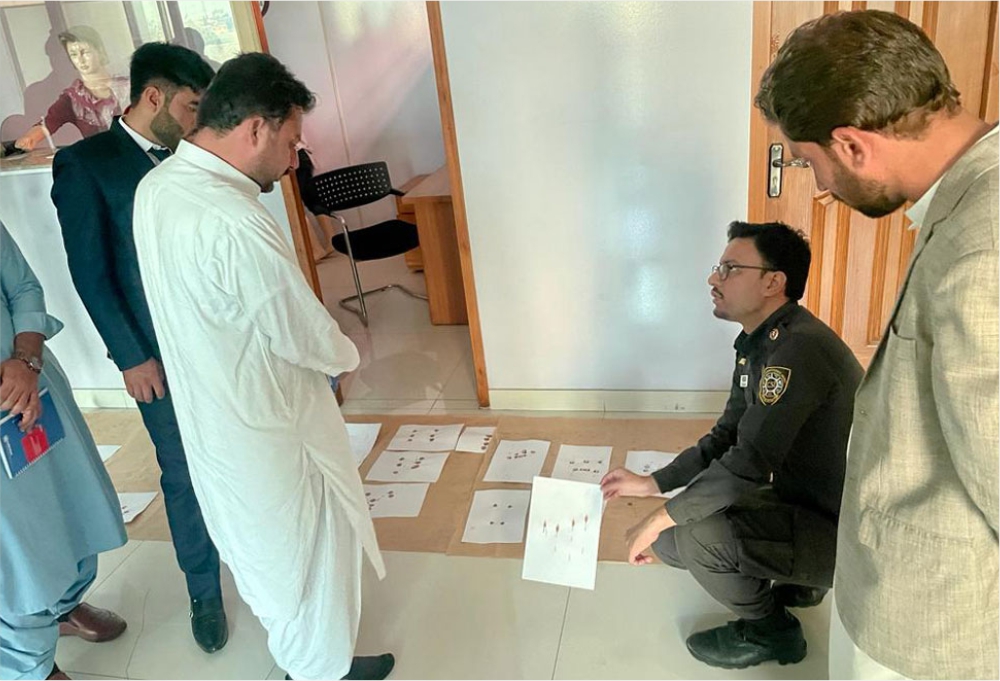
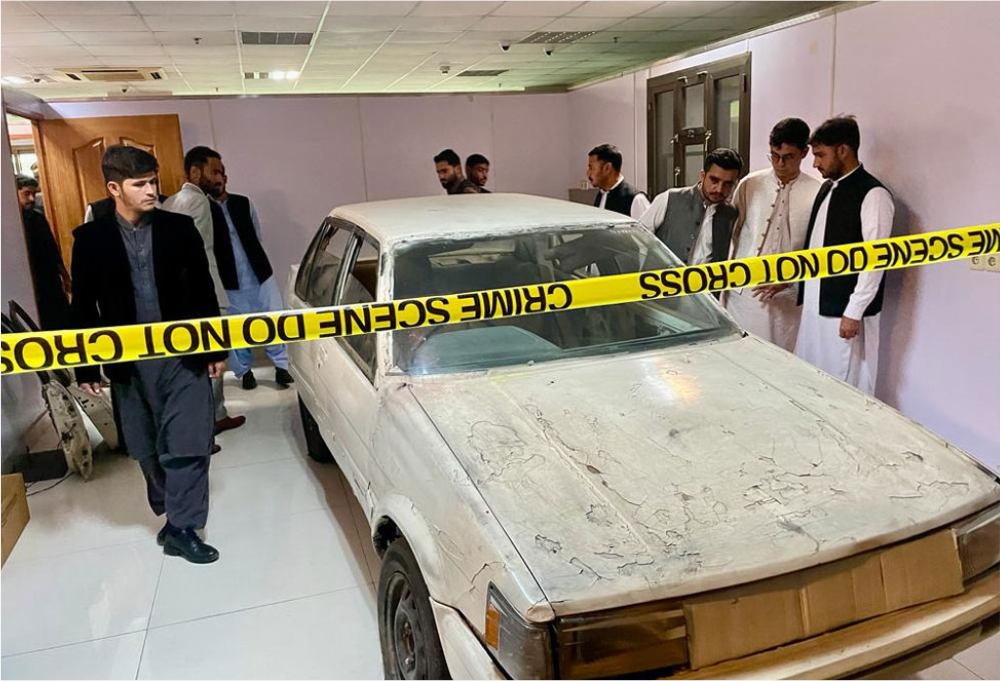
During the training session, the officials of the CTD departments were exposed to a range of comprehensive training modules covering Evidence Collection, Preservation, and Analysis. Crime Scene Management, a key aspect of the overall training, was thoroughly explored, providing insights into the parameters involved in effective crime scene processing. Central to the training were practical demonstrations emphasizing evidence preservation and maintaining its integrity. These pivotal components equipped participants with crucial techniques essential for handling evidence in actual investigative settings. Practical exercises played a crucial role in the training, allowing participants to understand how to maintain the integrity of evidence using different tools and techniques. The hands-on approach facilitated a deeper understanding of the intricacies involved in handling forensic evidence. In addition, the participants were also provided with the exposer to PFSA individual departments including Firearms and tool marks, fingerprint identification, DNA and Serology, audio/visual and crime scene management.
The training also covered the legal aspects of forensic evidence, covering topics such as the admissibility of forensic evidence in the court of law. Participants gained insights into legal provisions, including Article 164 and 59 of the Qanoon-e-Shahadat Ordinance and 59 of the Code of Criminal Procedure. Moreover, discussions also touched upon the Supreme Court of Pakistan's amendment in the year 2021 regarding forensic evidence.
The participants were also provided with hands-on learning experiences through exposure to mock crime scenes. These dynamic scenarios provided a valuable opportunity for officials to understand and implement the essential techniques for maintaining the integrity of a crime scene. Through these exercises, officials improved their skills in evidence collection, preservation, and documentation, gaining a firsthand understanding of the meticulous processes involved in conducting effective crime scene investigations.
The success of this training session lies in its holistic approach, combining theoretical knowledge with practical applications. The collaborative efforts of UNODC, PFSA, and the generous funding from the UN Peace and Development Trust Fund mark a pivotal step towards building a skilled and resilient law enforcement community dedicated to countering terrorism in Pakistan.
Funded by: UN Peace and Development Trust Fund
